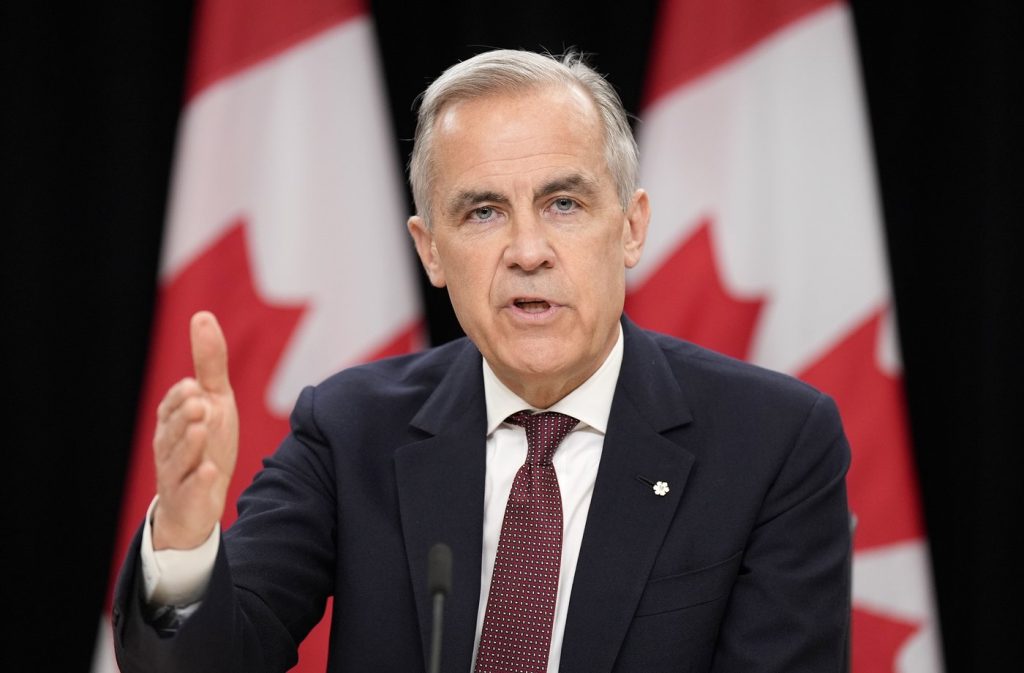OTTAWA -- Prime Minister Mark Carney faces numerous foreign policy challenges beyond the actions of U.S. President Donald Trump as he navigates a turbulent international landscape in the coming months. Key issues include Canada’s role in the Group of Seven (G7) summit, defense dealings with Europe, relations with China and India, expanding trade ties, aid commitments to the Global South, and managing the complex situation in the Middle East.
Trump in Alberta for G7
In just six weeks, Carney is set to host his fellow G7 leaders in Kananaskis, Alberta. The countries invited include the leaders of France, Germany, Japan, the United Kingdom, Italy, and the European Union, alongside President Trump. This summit presents an opportunity for the G7 to assess global challenges and draft a communiqué outlining their collective stance. The last Canadian-hosted G7 summit in 2018 ended in discord when Trump refused to sign the closing statement, criticizing former Prime Minister Justin Trudeau as "very dishonest and weak" over tariff disputes. Canada is proactively working to ensure U.S. engagement at this year's G7, focusing on shared maritime security concerns and addressing issues like illegal fishing and biodiversity loss.
Defence Deals with Europe
Carney is also expected to attend the NATO summit beginning June 24 in the Netherlands, amid tensions regarding U.S. President Trump's stance on NATO member defense obligations. Canada has yet to meet NATO's defense spending guideline of 2% of GDP, which was established in 2006. The need for robust defense strategies gains weight due to the ongoing military threat from Russia, especially concerning Ukraine. Canada intends to participate in Europe’s ReArm initiative aimed at increasing defense capabilities and reducing reliance on U.S. military support.
Relationship with China
During the election campaign, Carney described China as "the biggest security threat to Canada," pointing to issues like China’s support for Russia's aggression and concerns over foreign interference. In contrast, Chinese officials aim to position Canada as a partner against U.S. "bullying." However, retaliatory tariffs imposed by China are impacting Canadian farmers, particularly in Western Canada. Despite this, China's importation of Canadian crude oil reached historic levels in March. Carney has signaled a desire to diversify Canada’s trade relationships with countries that align more closely with Canadian values.
Reviving Ties with India
India was initially seen as a key partner in Canada's Indo-Pacific strategy, but relations soured after the June 2023 assassination of Sikh activist Hardeep Singh Nijjar in British Columbia, leading to accusations from Trudeau implicating India in the incident. This deterioration was marked by India's foreign minister's declaration that Canada was "our biggest problem." Carney expressed his intent to pursue trade with India, emphasizing respect and acknowledging the complexities in the relationship attributed to external pressures.
Expanding Trade Ties
Canada's trade agreement with the United Kingdom, established post-Brexit, remains limited as negotiations have stalled over issues such as market access for dairy and beef. Canada's envoy to London has indicated a potential shift in talks, pending Britain's adjustments to its import regulations. There is a broader concern that Canadian businesses have not fully capitalized on existing trade agreements with countries like Chile and South Korea.
The Global South
In a departure from the trend seen in many Western nations, Carney has committed to maintaining Canada’s foreign aid and development funding levels. This pledge comes as global humanitarian needs rise, exemplified by dwindling resources in refugee camps. Carney underscored Canada's historical role in providing aid and support to vulnerable populations worldwide, while questions linger regarding the efficacy of past strategies in boosting investment in regions like Africa.
The Middle East
Concerning the Israel-Hamas conflict, Carney appears poised to continue Trudeau's approach, which has been met with mixed reactions from various communities in Canada. His administration has criticized Israel for obstructing aid to Palestinians, a situation that has drawn condemnation from human rights organizations. Carney has also reiterated the need to hold Iran accountable for its destabilizing actions in the region.
This multifaceted foreign policy agenda presents Prime Minister Mark Carney with significant challenges as he seeks to assert Canada’s role on the global stage while balancing domestic and international pressures amid evolving geopolitical dynamics.











